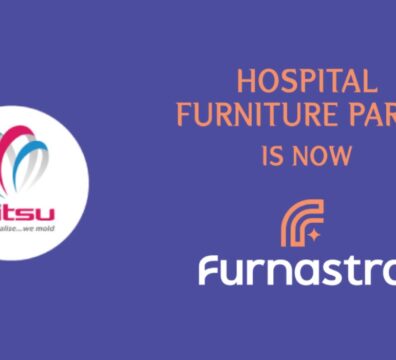In the pharmaceutical industry, ensuring the safety and efficacy of medications is paramount, and one crucial aspect of this process is the packaging used to store and deliver these products. Mitsu, a leader in pharmaceutical packaging, offers a comprehensive range of plastic containers specifically designed to meet the industry’s stringent safety and compliance standards. From jerry cans, bottles, drums, barrels, and carboys to injection-molded products like caps, closures, bungs, lids, handles, lugs, measuring caps, and glass bottle caps, Mitsu provides high-quality solutions that cater to various pharmaceutical applications.
More than 40% of the pharma industry relies on Mitsu containers due to their exceptional quality, safety, and versatility. Mitsu ensures their packaging meets regulatory requirements and adheres to the highest standards of material safety, sterilization, and packaging design.
Regulatory Standards: Mitsu's Commitment to Compliance and Safety:
Pharmaceutical packaging must adhere to rigorous regulatory standards to protect public health, ensuring that packaging materials do not interact with drugs, thereby maintaining the integrity and efficacy of medications throughout their shelf life. Mitsu complies with guidelines set by regulatory bodies like the U.S. Food and Drug Administration (FDA) and the European Medicines Agency (EMA), ensuring their plastic containers meet the highest levels of safety, quality, and compliance.
Key regulatory requirements that Mitsu meets include:
- Material Composition: Mitsu uses only high-quality, medical-grade plastics free from harmful additives and suitable for pharmaceutical use, ensuring that their containers are safe for direct contact with medications.
- Container Closure Integrity: Mitsu’s packaging solutions guarantee that containers remain sealed, tamper-proof, and resistant to contamination, degradation, or unauthorized access.
- Stability Testing: Mitsu’s containers undergo rigorous stability testing to ensure they withstand various environmental conditions—like temperature fluctuations, humidity, and light exposure—without compromising drug safety or efficacy.
- Labeling Requirements: Mitsu provides packaging that meets all labeling requirements, offering clear and accurate information regarding contents, dosage instructions, expiration dates, and safety warnings.
Material Safety: Mitsu’s Use of Medical-Grade Plastics:
The safety of pharmaceutical packaging is highly dependent on the materials used. Mitsu utilizes medical-grade plastics designed to meet the industry’s stringent safety standards. These plastics are non-reactive, ensuring they do not interact with medications in a way that could alter their composition or effectiveness.
Mitsu’s containers feature:
- Biocompatibility: Mitsu’s plastic materials do not cause adverse reactions when in contact with drugs or the human body.
- Chemical Resistance: Mitsu ensures its plastics are resistant to chemicals, preventing degradation or the leaching of harmful substances into medications.
- Durability: Mitsu’s medical-grade plastics provide the strength needed to endure physical stress during transportation and storage, maintaining container integrity.
- By using high-quality, medical-grade plastics, Mitsu guarantees that its containers provide reliable protection for various drug formulations and delivery methods.
Packaging Requirements: Child-Resistant and Tamper-Evident Designs
Plastic containers have become indispensable in the pharmaceutical industry, offering unmatched safety, durability, and cost-effectiveness. Mitsu leads the way in producing high-quality pharmaceutical packaging that adheres to stringent regulatory standards. By focusing on material safety, effective sterilization processes, and advanced packaging designs, Mitsu sets the standard for excellence, safeguarding the health and well-being of patients worldwide. Whether it’s jerry cans, bottles, or specialized injection-molded products, Mitsu’s comprehensive range of solutions caters to all pharmaceutical needs, ensuring safety and compliance at every step.
Conclusion:
Plastics have become indispensable in the healthcare industry, particularly in hospital infrastructure. Companies like Mitsu are leading the charge, offering a wide range of plastic components that enhance the functionality, aesthetics, and safety of hospital environments. As the industry evolves, the role of plastics in healthcare is set to become even more significant, driving further advancements in hospital infrastructure.







